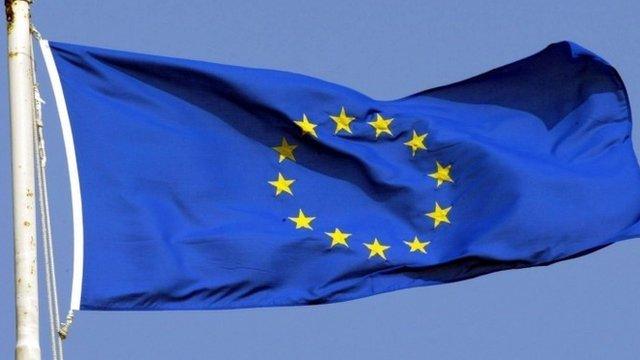Why the EU referendum is about you
- Published
How does the European Union work?
It's not about him. Or his deal. Or what he did or did not negotiate in the middle of the night.
And it's not about them. Or what they say. Or what they think of what he did or did not achieve.
No, this is now all about you. And your country. And what you will decide.
That's because after all the talk about the prime minister's haggling in Brussels, you now have a say just as big as he does on one of the most important questions the country has ever faced - should we stay or go, should we be in or out, should we remain or leave the European Union?
The British people will now get to make that choice in what many have demanded for so long - a referendum on the UK's membership of the European Union, which will be held on Thursday 23 June.
If you're under 58 years old, it's a choice you've never had.
If you're older than that, you had the chance to vote in a referendum in 1975 on our membership of what was then known as the Common Market, or EEC, but you may feel - as many older voters do - that the UK is now part of something very different.
The next few days will be dominated by arguments about the details of the deal David Cameron has negotiated with the 27 other EU leaders.
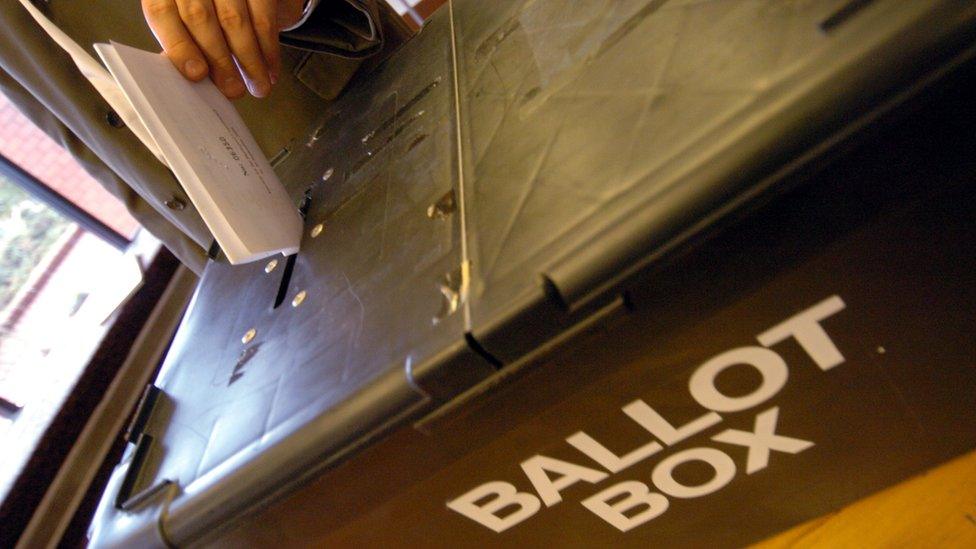
The EU referendum will take place on 23 June
Will it cut the number of people moving here from Europe? Will it protect British business from decisions taken by and in the interests of the eurozone? Will it prevent the UK from being sucked into "ever closer union" or what some call a federal Europe?
Will it make it easier for national politicians to stop those in Brussels imposing unwanted new rules or laws? Will whatever was agreed stand up in Europe's courts and parliaments?
However, the decision that you will face in four months' time will, I suspect, be dominated by more fundamental questions. Would we be richer, would we be safer, would we have more control of our own destiny, would we have more influence in the world if we chose to remain or to leave?
Black and white choice
There won't, of course, be any space on the ballot paper to say, "I'd like to stay if only there was less interference from Brussels or bureaucracy or immigration, or if only there was more democracy".
There won't be an opportunity to say "I'd like to leave if I could be sure the EU won't make it harder or more expensive to sell our goods, or force us to allow Europe's people to move here freely if we want our goods and services and money to move freely there".
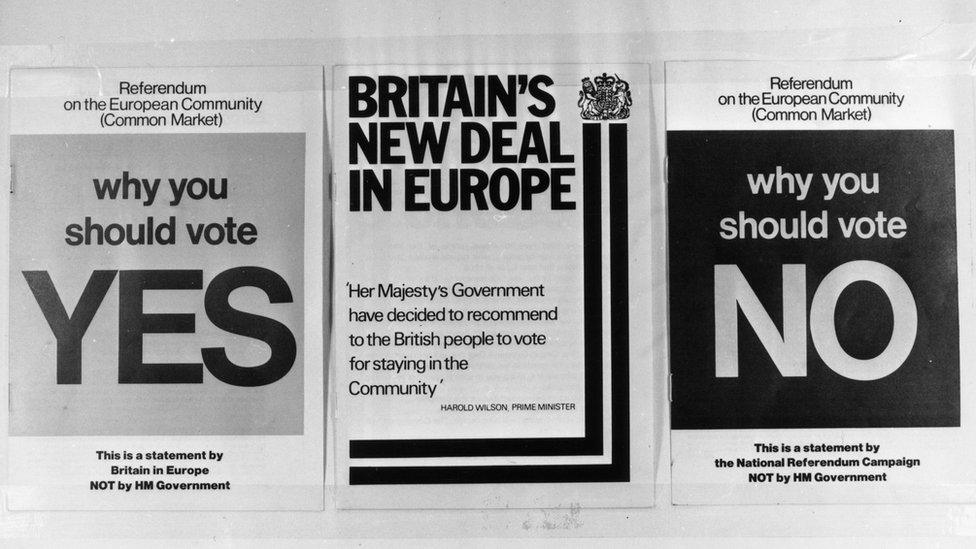
Britain held a referendum on Common Market membership in 1975
No, the choice will be a simple, plain, black and white one - remain or leave. No ifs, no buts, no maybes. It will involve making a judgement on what the future might be like one way or another. No expert can simply tell you what you should or should not believe.
I'm often told that it doesn't matter how you vote because "they" were all the same, all in it for themselves and nothing ever changed.
You can't say that about this vote. It matters. It will make a difference. And it's not about Cameron, or Boris's or Corbyn's future. It is about you and yours and your country's.
Nick Robinson is a presenter on BBC Radio 4's Today programme and is a former BBC political editor.

Read more:

- Published20 February 2016
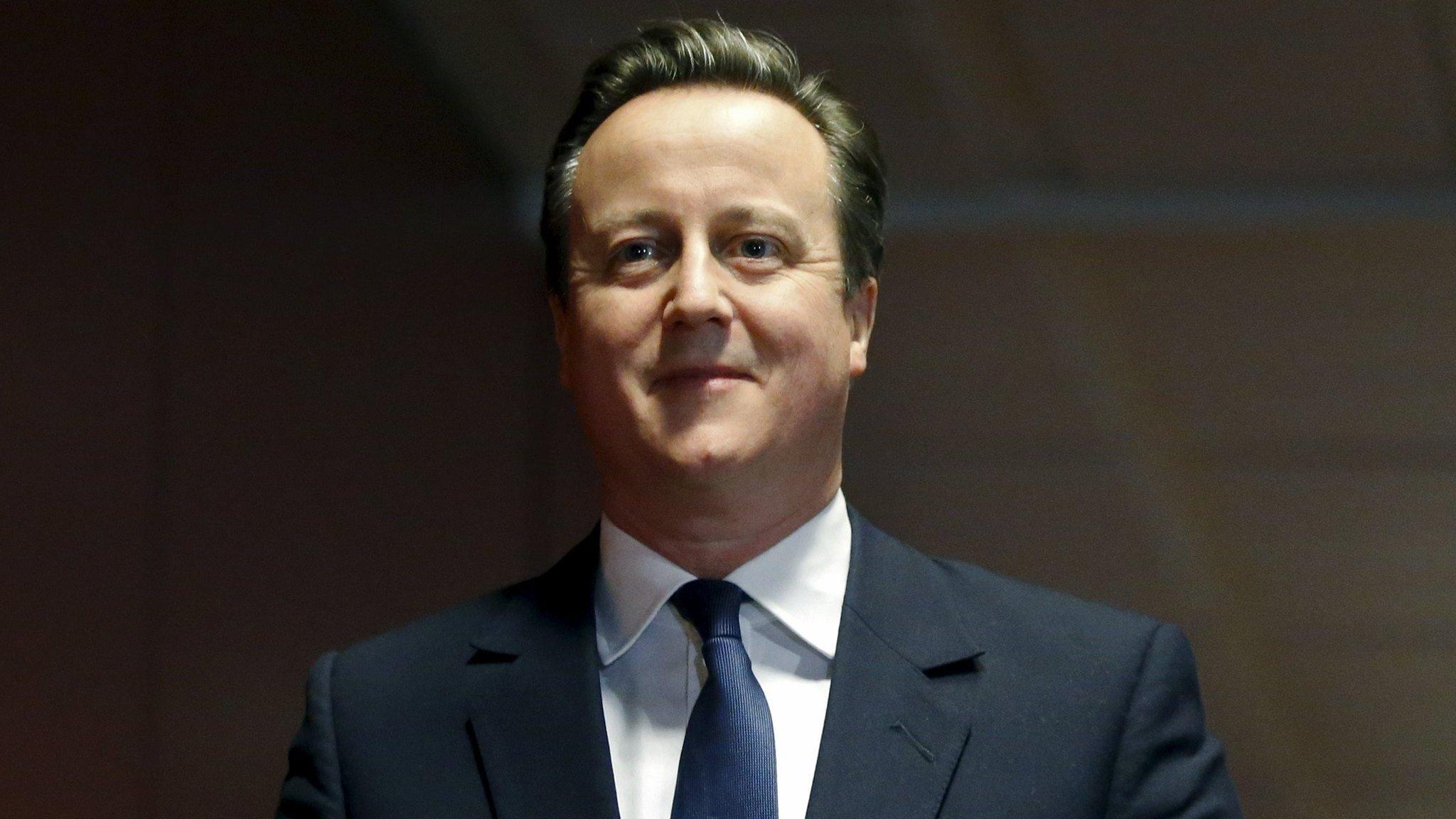
- Published19 February 2016
- Published16 February 2016
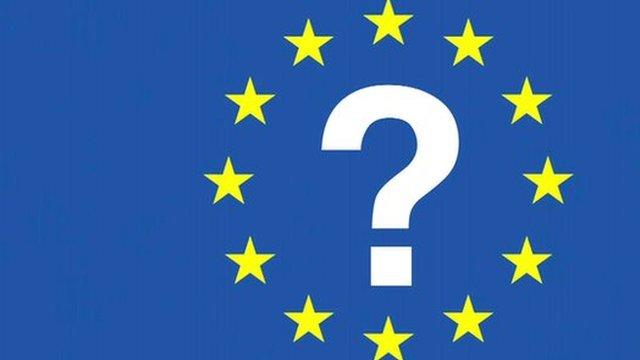
- Published10 February 2016
